Qiddiya E-Sports World Cup -
Forging Moments of Gaming Glory
Qiddiya hailed as the capital of entertainment, sports, and culture, proudly hosted the Esports World Cup 2024—a premier multi-genre esports competition that captivated audiences from July 3rd to August 25th at Riyadh Boulevard.
This prestigious competition united the world’s top esports talent, drawing in millions of fans and cementing Qiddiya’s reputation as a global epicenter for immersive, high-octane experiences.
At Ortmor, we are thrilled to have played a pivotal role in this prestigious event by creating state-of-the-art, tech-powered games that enhanced the excitement and pushed the boundaries of interactive entertainment.

Client Requirements
The client wanted an experience that showcased Qiddiya's pinnacle status and reflected the pride of the company. To deliver on this, we developed three interactive games: a typing game that measured reaction time, speed, accuracy, and focus; a VR shooting game that tested precision, hand-eye coordination, spatial awareness, and decision-making; and an active floor LED game that tracked reflexes, agility, physical fitness, and coordination.
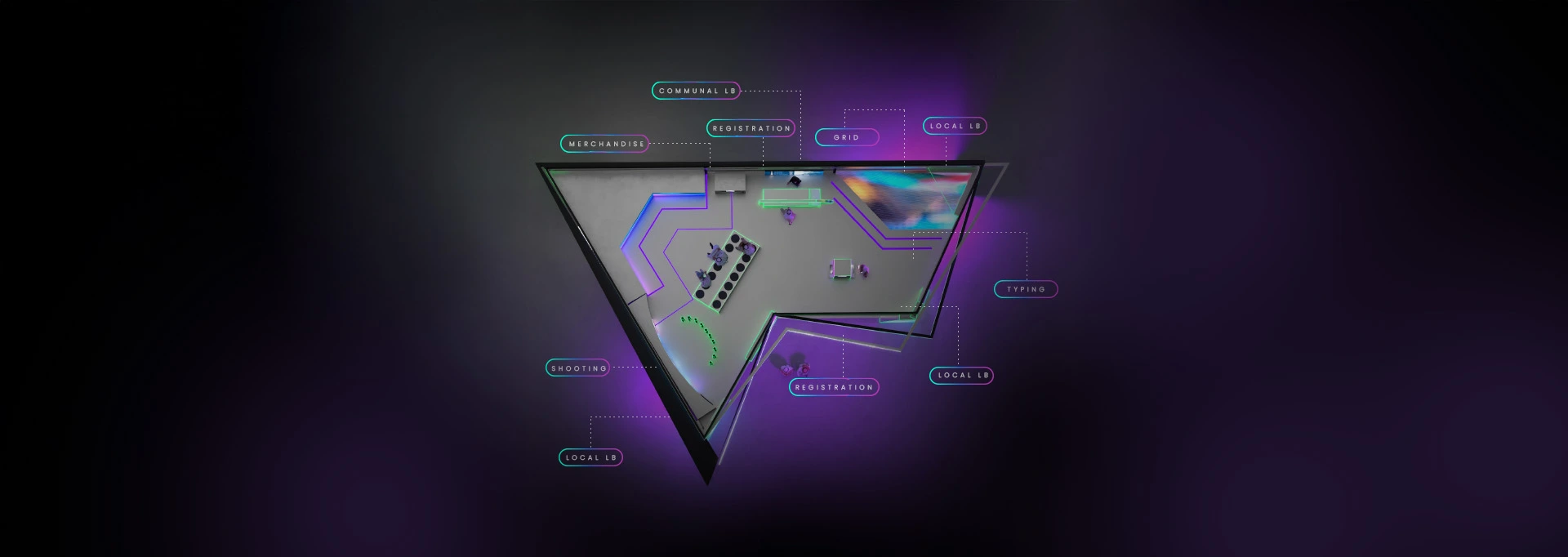
A streamlined registration system was set up so players could easily create profiles, create their avatars, and generate unique codes to access the games. To amp up the competitive element, we added individual and communal leaderboards that displayed real-time rankings, showing players how they stacked up against both their personal bests and the larger community.
To take things even further, we integrated an IoT-powered dispenser that handed out rewards based on game performance, making the whole experience even more engaging and fun.
Key Objectives
Our goal was to firmly establish Qiddiya as a leader in the esports event while crafting a memorable experience for visitors. To support this, the games were thoughtfully designed to be straightforward and accessible, ensuring everyone could participate with ease and enjoyment.
This involved crafting the games and features to prioritize simplicity and accessibility, making it easy for players of all skill levels to interact effortlessly with the experiences, leaderboards, registration system, and IoT gift dispenser. Our focus was on creating a hassle-free and enjoyable journey, putting user convenience and engagement at the heart of every design choice.

Overcoming Challenges
During the project, we encountered several intricate challenges that demanded creative solutions and close collaboration with the client. A primary obstacle was flawlessly merging the avatar creation process with the registration system.
Striking the right balance between personalization and simplicity was crucial to ensure a streamlined user journey without unnecessary complications. Another significant challenge was integrating the games with the leaderboard APIs, which required establishing instantaneous communication between the games and both individual and communal leaderboards.

This necessitated a focus on ensuring score updates were precise, eliminating delays while preserving data integrity. Additionally, the IoT dispenser posed a unique challenge, as it had to function seamlessly in real-time with the leaderboard data to dispense rewards based on player achievements.
Ensuring consistent synchronization across devices while delivering rewards promptly demanded thorough planning and rigorous testing. Despite these complexities, the project was successfully executed, exceeding the client's expectations in both functionality and user experience.
Experiences to Enchant
To deliver a unique and captivating user experience, we developed three games along with two leaderboards and an IoT reward dispenser utilizing advanced technologies and gamification elements. These experiences were designed to engage users through both physical and virtual platforms, integrating tools like Replicate AI, Unity, and IoT to create memorable interactions.
Registration Avatar Generation
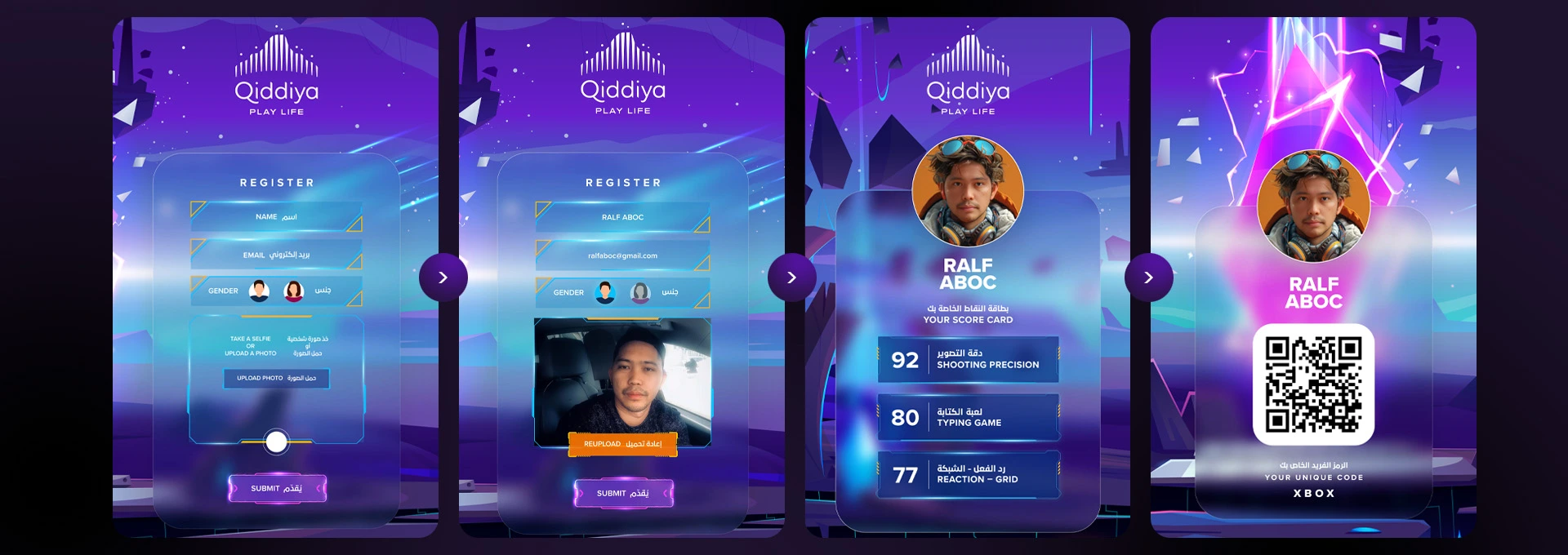
The Registration & Avatar Generation process allowed users to register by inputting their name, email address, and photo. Using Replicate AI, a personalized avatar was created for each participant. After registering, users received a unique code and a QR code via email, which they could use to access the gaming platform. This system was built with Node React, which managed the database, user information, and the generation of QR codes. This simple and effective registration process made onboarding seamless and set the tone for an interactive event.
VR Shooting Game
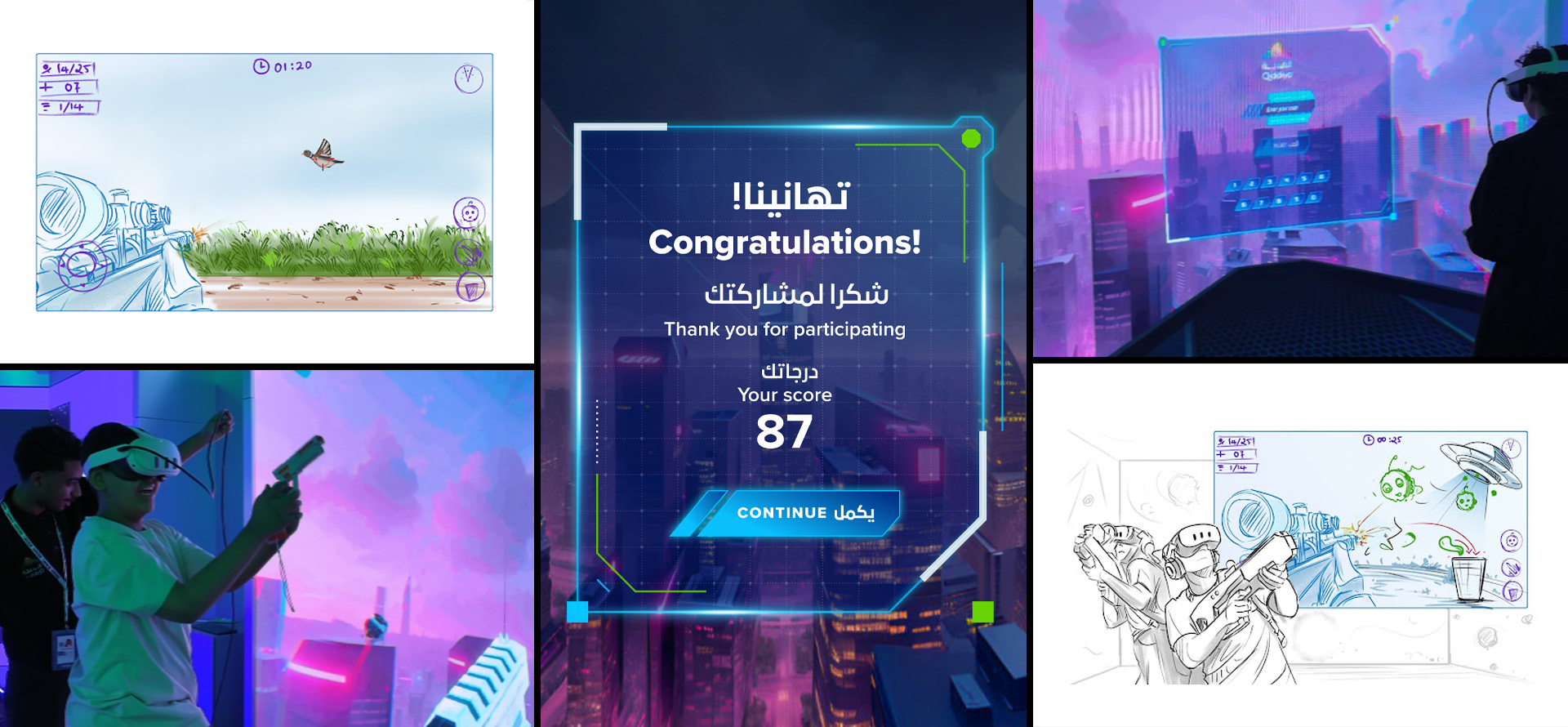
The VR shooting game immerses players in a virtual Riyadh city under alien invasion. Participants use the provided VR gun to eliminate the aliens within a set time limit. After entering their unique code, players jump straight into the action-packed gameplay.
Developed using Unity, the game features responsive mechanics and realistic physics, delivering a dynamic and engaging virtual reality experience. With VR headsets and guns, players enhance their reflexes, hand-eye coordination, precision, spatial awareness, and decision-making skills while enjoying the thrill of fast-paced challenges.
The Output
Speed Typing Game
The Speed Typing Game is a multiplayer challenge where up to two players compete to type a 50-word paragraph as quickly and accurately as possible. Each side of the interactive pillar features a keyboard, and players must correct any mistakes before proceeding, as incorrect words freeze until fixed.
Scores are calculated based on words per minute, allowing even solo players to enjoy the game. Built using Unity, the game combines entertainment with skill-building in a competitive format, testing players' reaction time, typing speed, accuracy, and focus.
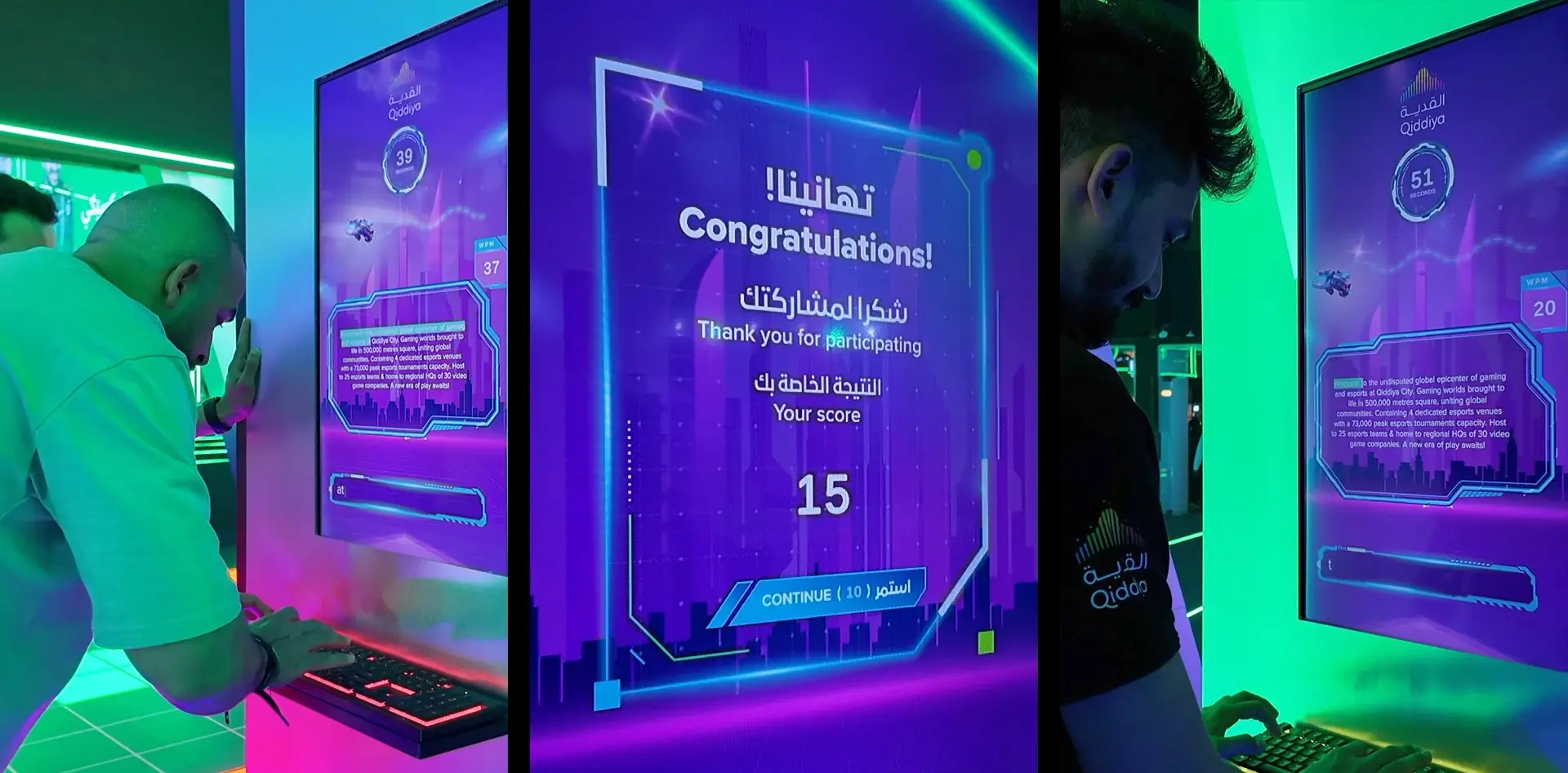
Floor LED Game
The Floor LED Game delivers an exciting multiplayer experience for up to six players, set on an LED-lit floor with pressure-sensitive tiles. The floor lights up in various colors like green, blue, and red. Players must avoid stepping on red tiles. As the game progresses, red tile waves appear more frequently, and their direction changes, increasing the challenge.
The game ends for a player as soon as they step on a red tile, with their score calculated up to that point. Designed to test reflexes, agility, physical fitness, and coordination, the game offers a dynamic and engaging way to combine fun with physical activity.
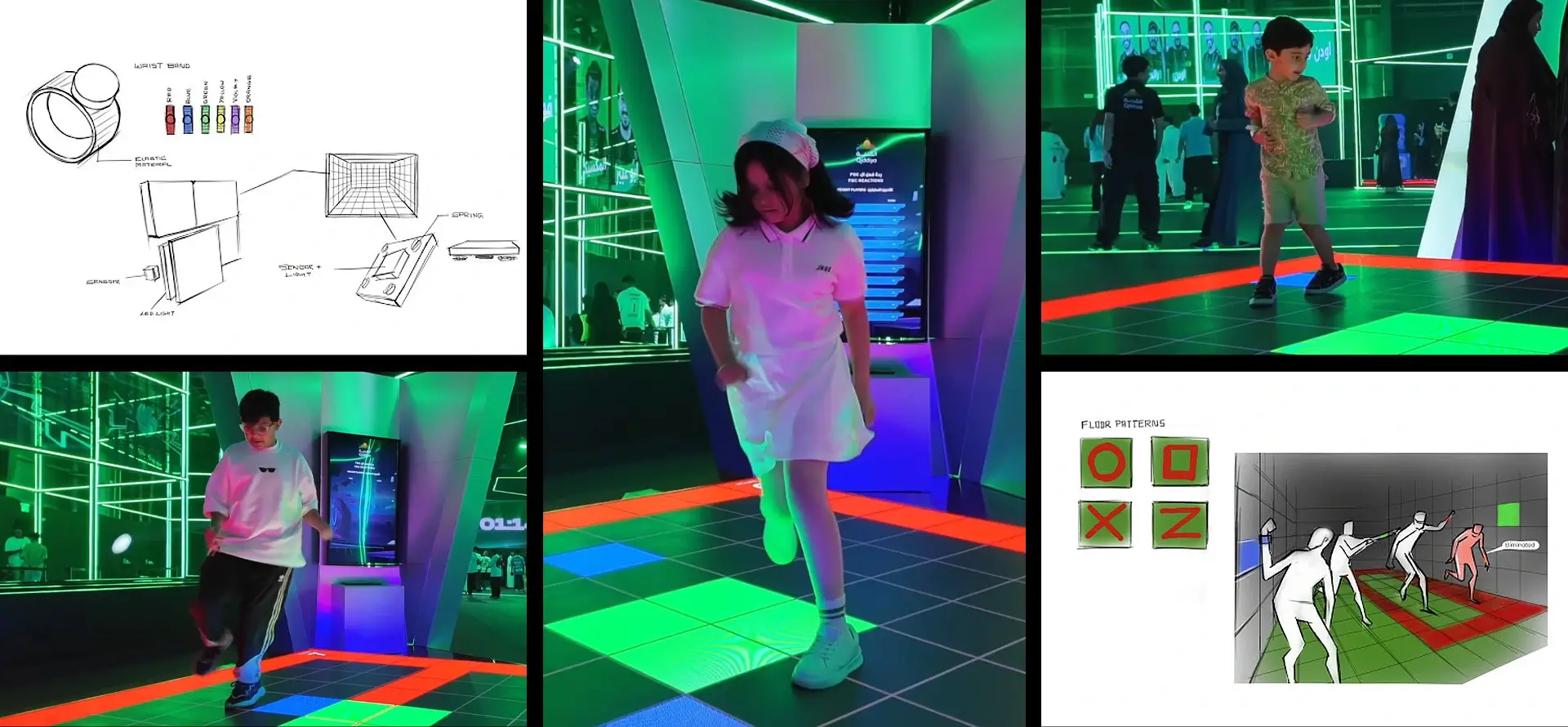
Leaderboards that Inspire Competition
To maximize engagement, we’ve designed dedicated leaderboards for each game, allowing players to track their performance and compete for the highest scores. Additionally, a central leaderboard will feature the top players from all games combined, celebrating the overall champions. Players who achieve a certain score in any game will be rewarded with exclusive gifts, encouraging everyone to aim for the top and make the experience even more rewarding.
IoT Reward Dispenser
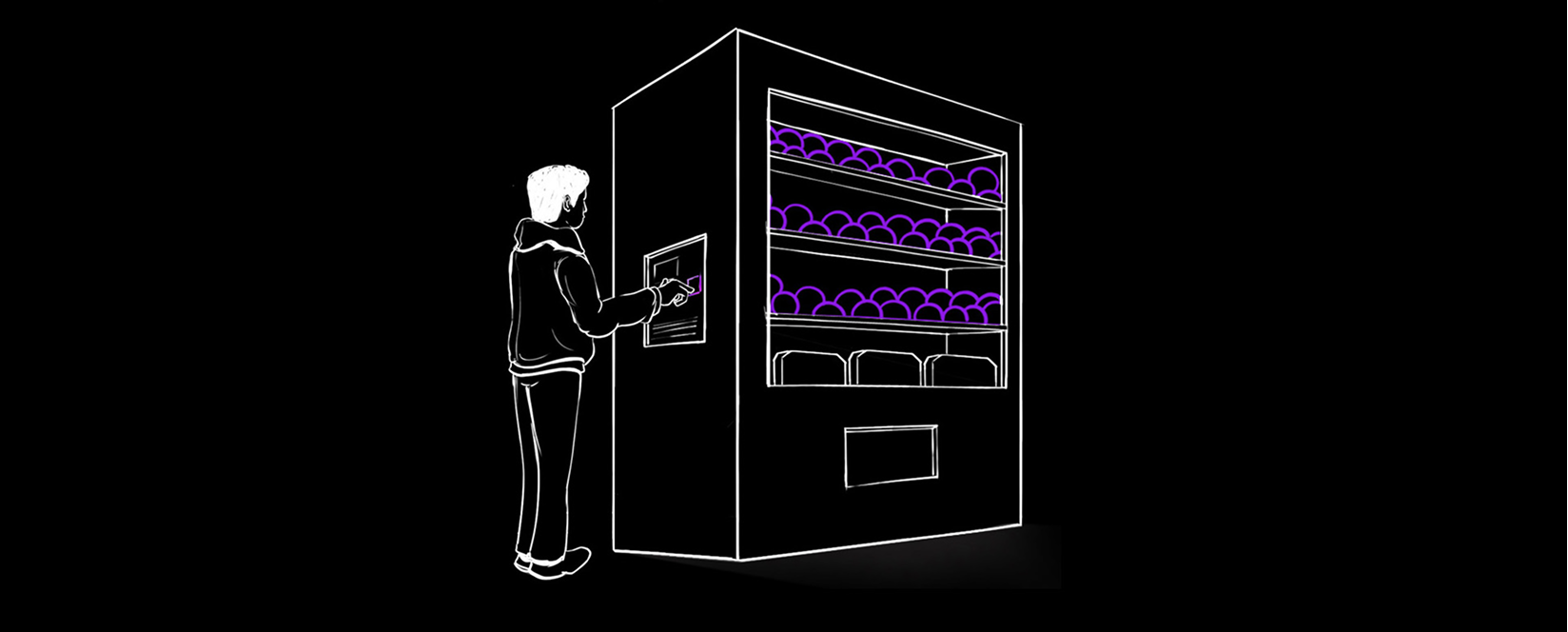
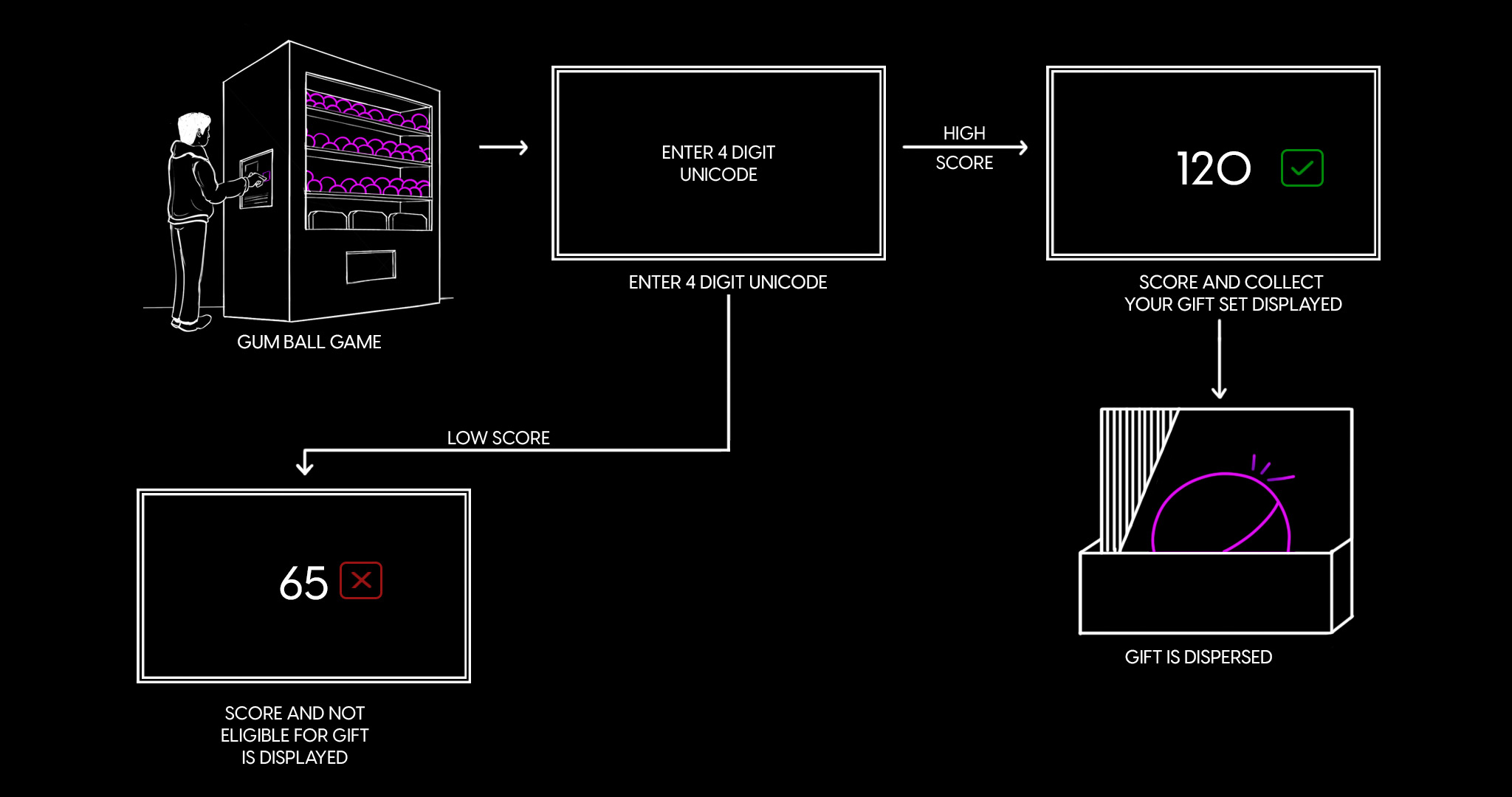
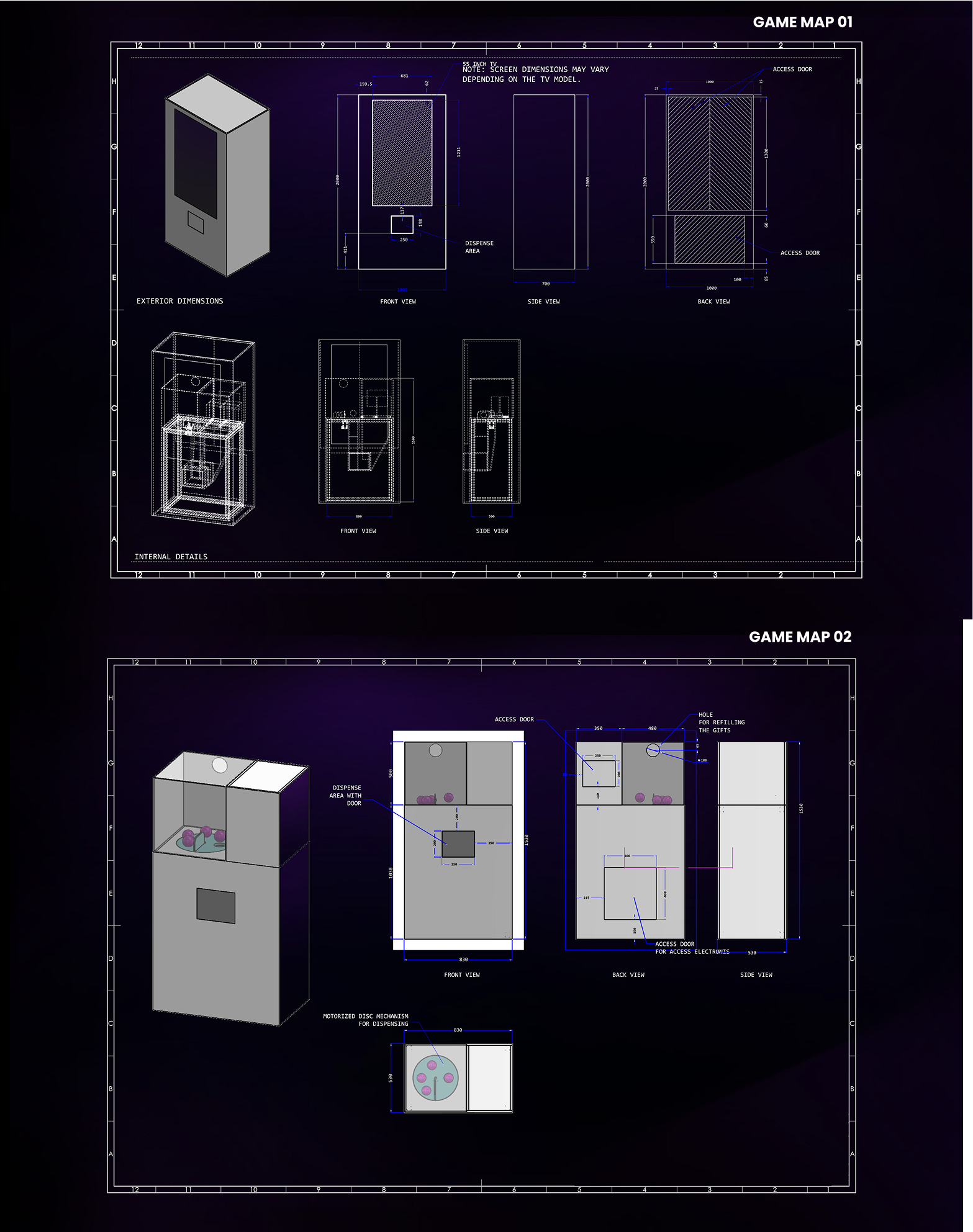
The IoT Reward Dispenser adds a tangible reward element to the experience. Players who accumulate enough points claim their reward by entering a unique code on the dispenser. Based on their score, players receive either a ball or a pelican box containing a secret code.
Players take this secret code to the merch shop to redeem their prizes. Developed using Node React and an IoT application, the system tracks player scores and controls the dispensing mechanism, encouraging competition and providing a memorable, gamified reward experience.
Setting New Standards in Esports
Our experience with the Esports World Cup 2024 project was both challenging and immensely rewarding. From conceptualizing unique, tech-driven gaming experiences to overcoming complex integration challenges, we worked closely with the client to push the boundaries of interactive entertainment.
The project was a resounding success, attracting over 38365 visitors and dispensing over 4625 rewards throughout the event. This not only showcased our ability to deliver innovative solutions but also reinforced Qiddiya’s position as a global hub for immersive experiences. We're proud to have contributed to an event that captivated millions globally and set a new standard for esports events worldwide.